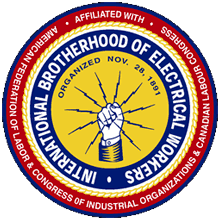May 23, 2013
Reprinted from UFCW.ORG
Many people would be surprised to know that garment making is quite possibly the most dangerous job “outside of war zones,” as Washington Post writer Harold Meyerson puts it in a recent article about the dangerous cycle that is the garment industry.
The death toll from last month’s building collapse in Rana Plaza, a garment factory in Bangladesh, has climbed to over 1100. Bangladesh comes second only to China in clothing and garment exports. The scale of this tragedy is immense, and heartbreaking, but it is by no means an isolated incident, or even the most recent event to have claimed the lives of workers in Bangladesh for that matter. Since the collapse of the Rana Plaza factory, which was structurally unsound, a fire that broke out in another facility last week, claiming eight lives. Another fire at Bangladesh’s Tazreen factory killed over 100 workers in late 2012. In most cases, workers cannot escape the fires due to a lack of fire doors and stairways, which are supposed to be in place.
Now, the major retailers that are supplied by Bangladesh garment factories are being forced to face the facts and take responsibility. Some companies have admitted to inadequate safety inspections, where inspectors made sure there were on-site fire extinguishers and things of that nature, but failed to ensure “the structural soundness” of the buildings.
Thanks to pressure by unions and activists around the world, a number of these mega-retailers have agreed to adhere to a plan to finally make working conditions for workers in garment factories safer. As per the plan, these companies have agreed to pay for renovations of these factories as well as “independent inspections” that will ensure the new safety measures are maintained.
Although H&M, the biggest buyer in Bangladesh, as well as companies like British-owned Primark have agreed to the plan, only one American company has done so. PVH, which is the parent company of Tommy Hilfiger, Calvin Klein, and Izod, have taken this step towards responsible business, major American companies like Gap and Walmart have so far refused, and don’t show any signs of doing the right thing.
Why can’t the Walton family, with their $116 billion fortune, commit to these measures when others have readily done so? The value of human life is greater than cheap clothing, but that doesn’t seem to be the way these companies see it.
Meyerson notes that it is not Bangladesh that is the problem- the industry has faced many hurdles surrounding safety since its existence. But incidents like the triangle shirt-waist factory fire have taught us how to change for the better. But instead of taking these lessons about worker safety and using them to do good, companies like Walmart have taken the problem “to a new level.” Meyerson continues:
“By depressing wages at its retail outlets and at every point along its supply chain, [Walmart] has helped create an underpaid buying public compelled to shop for discount clothing. Everyday low wages create a demand for everyday low prices — a downward spiral that hits bottom in the deathtraps of Bangladesh.”
This trend in the retail industry affects all Americans, but it hits very close to home for many UFCW members. In a statement issued about the pact to improve workplace safety in Bangladesh, UFCW President Joe Hansen stated:
“Thousands of UFCW members work in the retail industry, including at H&M, and the UFCW will continue to honor the workers who died or were injured in Bangladesh by supporting workers here and abroad who are struggling to protect their basic rights, and by calling on other retailers that have a strong presence in Bangladesh—such as Walmart—to do the right thing and sign this agreement.”
It’s time for these retailers to take action.



